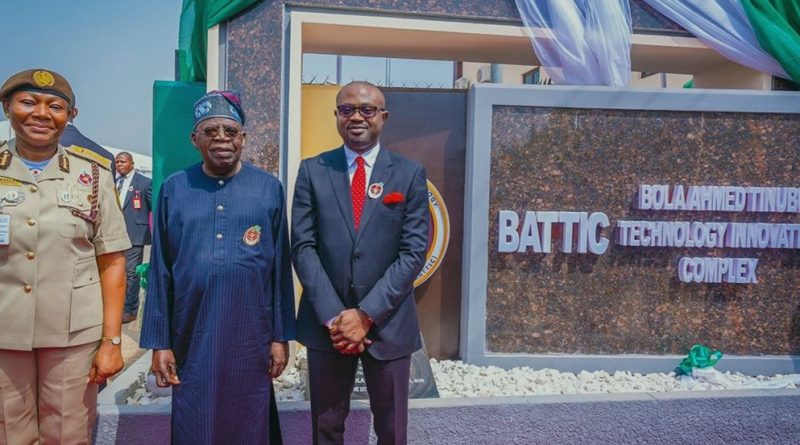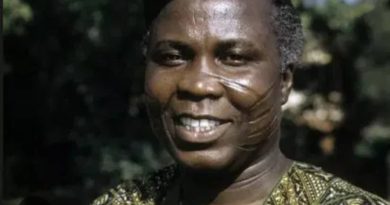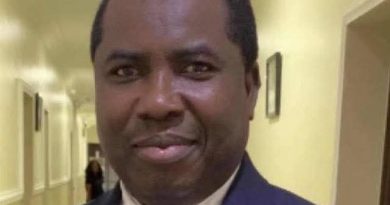Inside Tunji Ojo’s Mission To Transform Nigeria’s Correctional System
By Femi Salako
When the Minister of Interior, Hon. Olubunmi Tunji Ojo, visited the Medium Security Custodial Centre in Kuje, Abuja, it was not just an inspection visit. It was a reaffirmation of the Federal Government’s commitment under President Bola Ahmed Tinubu’s Renewed Hope Agenda, an agenda built on fairness, justice, dignity, and the belief that every Nigerian deserves a chance to rebuild their life.
Tunji Ojo’s message was clear and direct: the days of overcrowded prisons and forgotten inmates are numbered. Working closely with the Office of the Attorney General of the Federation, the Ministry of Interior is driving efforts to end the persistent delays in Nigeria’s justice system that have left thousands of people in detention without trial. “We are working together, looking at inmates who have spent more time awaiting trial than they would have if they had already been convicted,” he said during the visit.
At the Kuje facility, where over 200 inmates have been convicted and more than 800 are still awaiting trial, the Minister emphasized the government’s determination to ensure that justice delivery becomes faster and more efficient. He assured Nigerians that a noticeable reduction in the number of inmates will soon be seen as the Federal Government rolls out targeted interventions to decongest correctional centres across the country.
This renewed push for reform is directly in line with President Tinubu’s Renewed Hope Agenda, which prioritises human dignity, institutional reform, and effective governance. Under the leadership of Tunji Ojo, the Ministry of Interior has transformed the nation’s correctional system from one focused on punishment to one that promotes rehabilitation, education, and reintegration.
One of the most significant milestones of this reform drive is the initiative to raise over 500 million naira to pay fines for inmates who could not afford them. This effort led to the release of about 4,000 inmates, easing congestion in several facilities. It reflects the compassion and people centred philosophy of the Tinubu administration, which seeks to give every citizen, including those behind bars, a renewed sense of belonging and purpose.
Infrastructure renewal has also become a key part of the reform process. Several outdated correctional centres are being rebuilt to meet modern standards, while digital record keeping systems are being introduced to make inmate management more efficient. These efforts align with the President’s vision of a technologically driven and transparent public service.
Education and skills development remain central to the correctional reforms. Tunji Ojo’s inauguration of the National Open University of Nigeria Special Study Centre at the Abakaliki Correctional Centre marked a turning point in prison education. More than 2,000 inmates are currently pursuing undergraduate and postgraduate degrees, with over 200 already graduated. This investment in human capital is consistent with President Tinubu’s broader commitment to education, skills acquisition, and national development.
Vocational training and entrepreneurship initiatives have also been expanded under Tunji Ojo’s leadership. In Maiduguri, for example, a showroom now displays furniture, crafts, and other goods made by inmates. Supported by the United Nations Office on Drugs and Crime, the German government, and the United States Department of State, this programme provides inmates with practical skills that can sustain them after release, thereby reducing the rate of reoffending.
Welfare improvements have further reinforced the administration’s people focused governance style. The daily feeding allowance for inmates has been increased from 750 naira to 1,125 naira, while better healthcare and hygiene facilities have been introduced across correctional centres. These improvements reflect a humane and reform oriented leadership that values the rights and well being of every Nigerian.
The Ministry has also deepened collaboration with international partners, including the United Nations Office on Drugs and Crime and the Nigerian Bar Association, to fast track justice processes and promote human rights compliance. The NBA President, Afam Osigwe, who accompanied the Minister on the Kuje visit, confirmed that the association is working to identify inmates who have overstayed in custody and to secure their release through legal support.
For Tunji Ojo, these efforts are not isolated initiatives. They are part of a broader national mission under the Renewed Hope Agenda to rebuild trust in public institutions, strengthen justice delivery, and ensure that correctional centres become places of transformation rather than neglect.
Through bold reforms, transparency, and compassion, the Ministry of Interior is redefining Nigeria’s correctional landscape. What was once seen as a forgotten arm of the justice system is now becoming a model for effective governance and humane administration. Under the leadership of President Bola Ahmed Tinubu and the stewardship of Hon. Olubunmi Tunji Ojo, the government is turning the page on decades of inefficiency and neglect, replacing despair with opportunity and restoring hope to those society once left behind.
This is the spirit of Renewed Hope in action, not just in policies, but in lives being transformed across Nigeria’s correctional centres.




